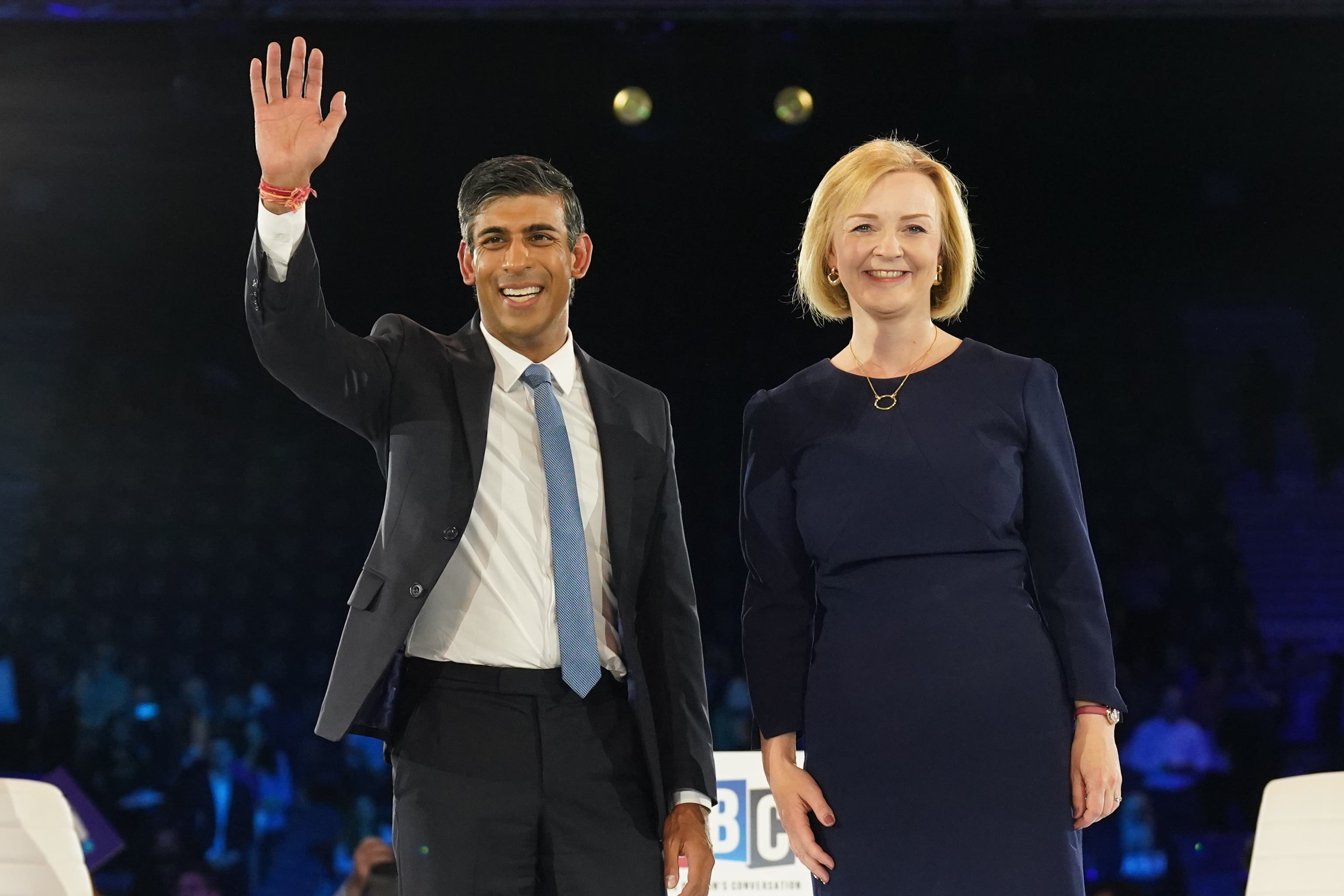Sunak will always listen to former PMs, says No10 after Truss intervention
Liz Truss defended her attempts to revive growth in her first detailed comments since she was forced out of No 10.

Prime Minister Rishi Sunak will always listen to former PMs, Downing Street has said, after Liz Truss used her first public intervention since stepping down to defend her failed bid to boost growth.
But Downing Street also appeared to rebuff the former prime minister’s suggestion that the UK’s “fiscal policy is in a straitjacket” and that a “worrying economic consensus” is threatening growth.
In her first detailed comments since she was forced out of No 10, Ms Truss said she had not appreciated the strength of the resistance she would face to her plans.
While she acknowledged that she was not “blameless” over the way her chancellor Kwasi Kwarteng’s infamous mini-budget catastrophically unravelled, she still believed her approach to driving growth was the right one.
Writing in The Sunday Telegraph, she said: “I am not claiming to be blameless in what happened, but fundamentally I was not given a realistic chance to enact my policies by a very powerful economic establishment, coupled with a lack of political support.
“I assumed upon entering Downing Street that my mandate would be respected and accepted. How wrong I was. While I anticipated resistance to my programme from the system, I underestimated the extent of it.
“Similarly, I underestimated the resistance inside the Conservative parliamentary party to move to a lower-tax, less-regulated economy.”
She also warned the country has “ended up in a situation as a country where fiscal policy is in a straitjacket. Moreover, there is a worrying economic consensus – both at a national and, increasingly, international level – that is preventing economic dynamism and growth”.
A Number 10 spokesman appeared to distance Mr Sunak and his Conservative administration from the comments about fiscal policy.
The spokesman said that while he does not comment on former governments or prime ministers, “in broader terms, we value the scrutiny of independent bodies like the OBR [Office for Budget Responsibility].
“The Chancellor is working closely with them in the lead up to the spring budget as you would expect.
“And they will have a role in providing independent, credible and high quality analysis. We are making the fiscal decisions to get inflation down, which in turn will help us grow the economy.”
My heart sank at the idea of former prime ministers taking the stage to tell us about what they did
The spokesman said that Mr Sunak listens to all his predecessors.
“Of course the Prime Minister will listen to all former prime ministers,” he said.
“But you have seen that he has set out his priorities for the country and he is working hard on all of those.
“I think it is important to have diverse debate and that will continue and, like I say, he will listen to all former prime ministers.”
Ms Truss’s premiership lasted just 49 days as she was forced to quit after her chancellor Kwasi Kwarteng’s £45 billion package of unfunded tax cuts panicked the markets and tanked the pound.
Her intervention is likely to be seen in Westminster as a rallying cry for Tory MPs who have been pressing Mr Sunak and Chancellor Jeremy Hunt to cut taxes.
Health Secretary Steve Barclay said it was “good” to hear from former prime ministers, as he praised the former leader’s Cabinet experience.
During a visit to Kingston Hospital in south-west London, he said: “I think Liz is focusing on the importance of growth and I agree that it is absolutely key, we’ve got to get growth in the economy.
I’m keen to hear from Liz, she brings huge experience as a former Cabinet minister, she was one of the longest-serving Cabinet ministers, and I think it’s good to hear from colleagues including former prime ministers
“It’s only through having a strong economy that we can pay for our NHS, pay for our public services.
“So it is right to focus on growth and it is right that through focusing on growth that we’ll then get the investment into the wider public sector.
“I’m keen to hear from Liz, she brings huge experience as a former Cabinet minister, she was one of the longest-serving Cabinet ministers, and I think it’s good to hear from colleagues including former prime ministers.”
Over the weekend, former Tory Party chairman Sir Jake Berry offered his support for Ms Truss’s agenda, telling the BBC that she had offered the right “diagnosis of the disease that is facing the country”, although it “wasn’t delivered in the correct way”.
But Labour leader Sir Keir Starmer said his “heart sank” as Ms Truss returned to offer her thoughts on the economy.
Speaking to broadcasters in Bristol, the Labour leader said: “I have to say, my heart sank at the idea of former prime ministers taking the stage to tell us about what they did. They did huge damage to our country and to our economy.
“And there are millions of people across the country still paying the price for the failures, well, 13 years failure of this Conservative government, so what the country needs is for us to move forward.
“We’re not going be able to do that until we have a general election now and a fresh start under Labour.
“But the former prime minister’s contest of who was the biggest failure is just about the last thing that this country needs right now.”
Bookmark popover
Removed from bookmarks